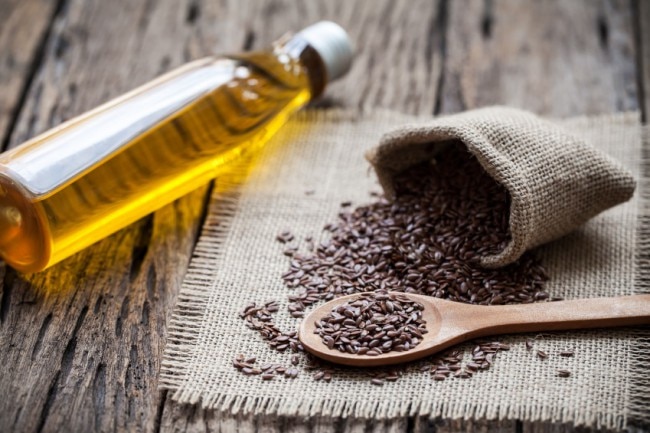Fat has always gotten a bad rap. That is, until research discovered the power of a certain family of healthy unsaturated fats: the omegas. These fats have shown to have health-promoting properties, making them an important piece of a balanced diet. However, if you eat a predominately plant-based diet, it can be a little tricky to get sufficient amounts of these essential fats from food alone.
Wait, why are omegas essential?
Certain types of omega-3s and omega-6s are considered essential, because your body cannot make them on its own. In order to fulfill these gaps, you have to rely on food or food-based sources. Unfortunately, while omega-6s are relatively easy to find (coconut, avocado, eggs, soybean oil and sunflower seed oil), the typical North American diet tends to lack omega-3s (fish, hazelnuts, flaxseed and chia seed).
According to the American Heart Association, polyunsaturated fats, such as omega-3s, can have a beneficial impact on heart health when consumed in moderation. These healthy fats can help keep cholesterol levels in a normal range, as well as provide support for mood and joint comfort.†
On their own, omega-3s are an unquestionably positive contributor to long-term wellness. But as part of a healthy plant-based diet that includes plenty of antioxidants, they may be even more helpful to your overall well-being.
What are the best plant-based sources of omega-3s?
- Walnuts
- Chia seeds
- Ground flax seeds (and flax seed oil)
- SaviSeeds
- Hemp seeds (and hemp seed oil)
- Vega One Nutritional Shake
- Vega Antioxidant Omega Oil Blend
Adding one or more sources of omega-3s to your day can help you reach your health goals. Try mixing a scoop of ground flax seeds and a scoop of Vega One with fruits and veggies to start your day. Or, top your lunch salad with walnuts and hemp seeds. If you’ve tried chia seeds, you know they have a tendency to gel. In your next baking recipe, swap the eggs for chia “eggs” by mixing 1 tablespoon of chia seeds with 3 tablespoons of water for every egg you need to replace. There are countless ways to get enough essential fatty acids in your diet, even if you don’t regularly consume fish or take fish supplements.

